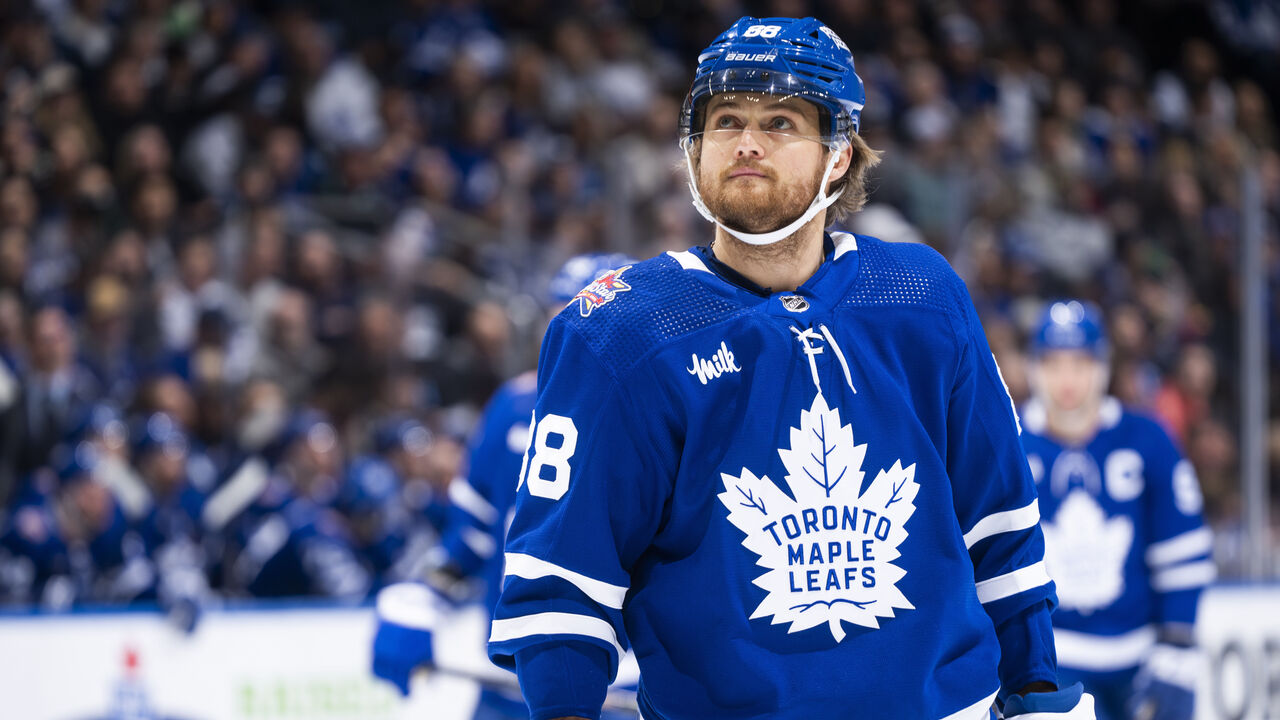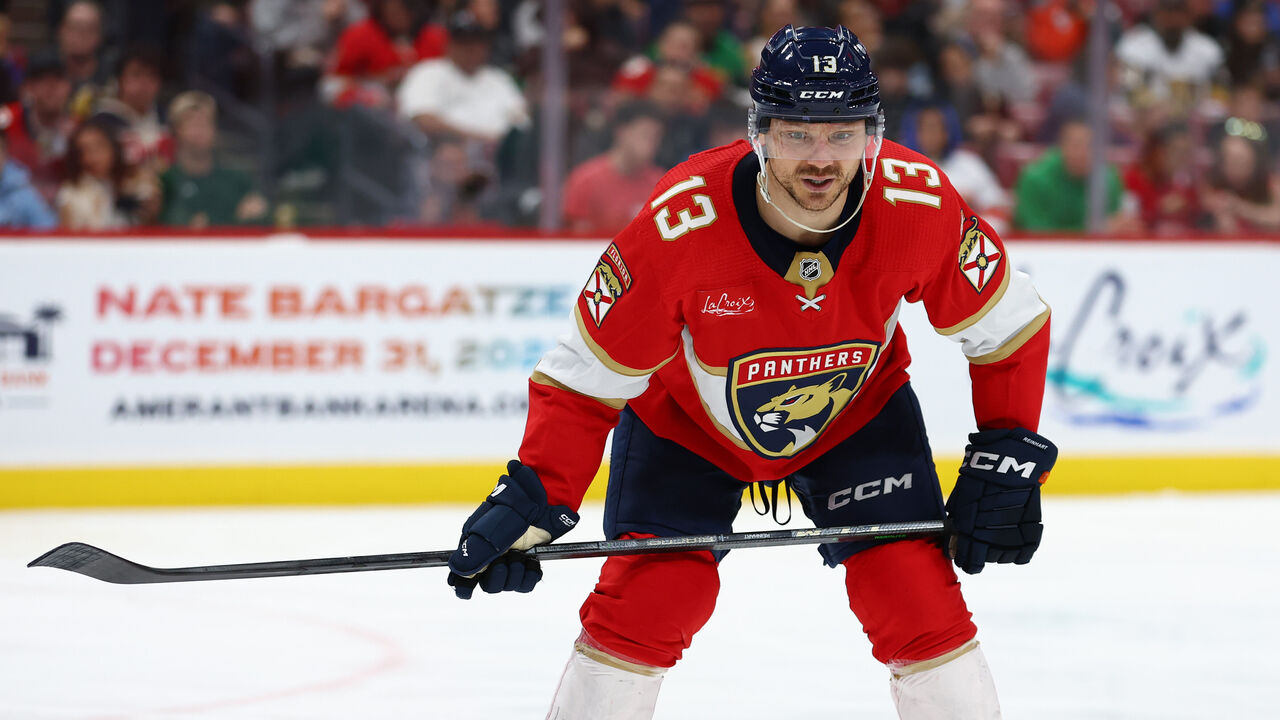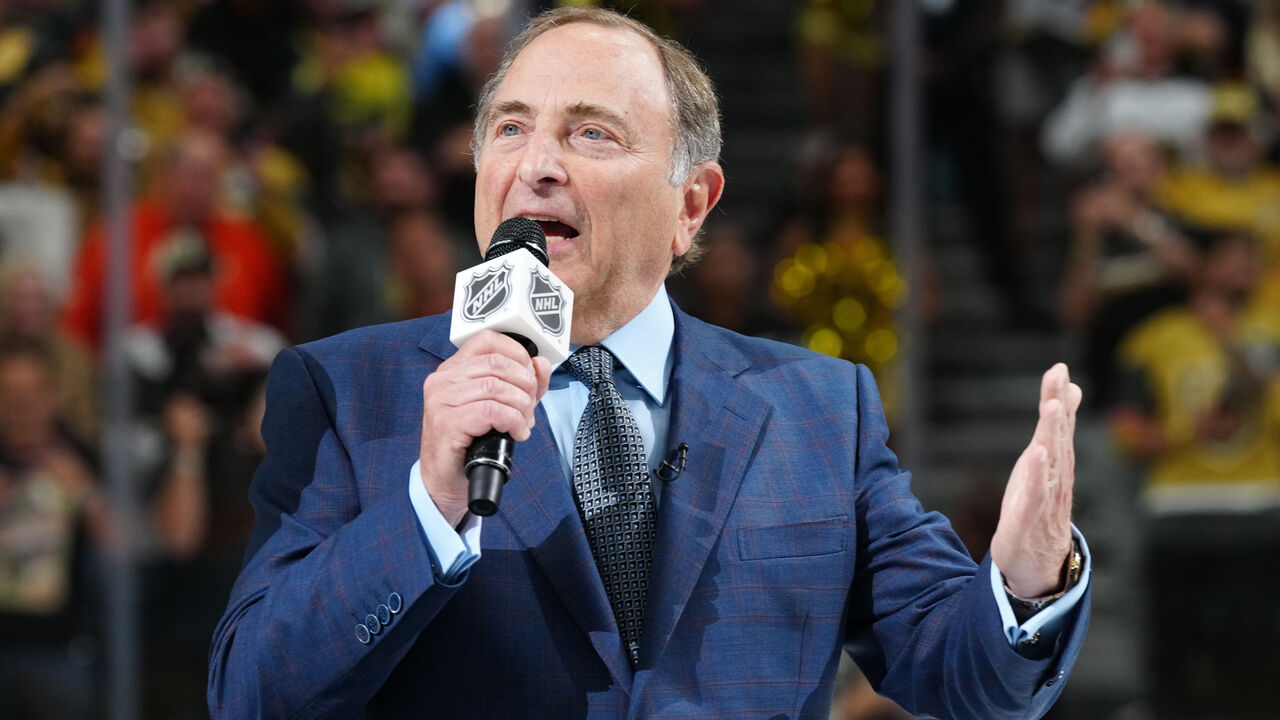5 takeaways from Nylander's extension with Leafs
The Toronto Maple Leafs signed winger William Nylander to a franchise-record eight-year, $92-million extension Monday. Several ramifications from the deal affect the Leafs and the rest of the league. Let's dive in.
Leafs pay top-end value for another star player Mark Blinch / National Hockey League / Getty
Mark Blinch / National Hockey League / GettyNylander is amid his best season, tallying 21 goals and 33 assists through 37 games, tying him with Connor McDavid for the fifth-most points in the league. Leafs fans should be ecstatic that a homegrown star wants to spend his entire career in Toronto.
But the Leafs aren't exactly getting any hometown discount here.
Nylander entered this season having never finished higher than 20th in league scoring. Since his emergence in 2021-22, he ranks 14th in points. Still, Nylander's $11.5-million cap hit will tie him for the fifth-highest-paid player in the league.
The most recent comparable is David Pastrnak - he and Nylander are the same age and play the same position. Signed 10 months ago, Pastrnak's deal with the Boston Bruins was also for eight years but with an $11.25-million cap hit. However, Pastrnak already had a 48-goal, 95-point campaign under his belt and was amid a season in which he finished as the Hart Trophy runner-up.
Pastrnak's pact was worth 13.64% of the cap ceiling when he signed the contract (13.5% of 2023-24's cap). Nylander's deal is worth 13.77% of this season's cap ceiling and 13.1% of 2024-25's projected cap. In a nutshell, the contracts are mighty close despite Pastrnak's longer track record of elite production.
Perhaps the Leafs could've saved about a million dollars per year had they reached an agreement with Nylander in the offseason. But this has been a consistent theme for an organization that hasn't been able to win negotiations with Auston Matthews and Mitch Marner, either, relative to other superstars around the league.
Getting Nylander signed is still far better than the alternative of trading him or letting him walk, and it shouldn't be a poor contract by any stretch. However, Nylander's camp clearly didn't do the Leafs any favors given that the deal also contains a full no-movement clause and bonus-heavy structure. No one should blame Nylander considering Marner and Matthews did the same thing, though. Why should he be the one to cave? Toronto just doesn't have the cap culture other teams do in which stars are open to taking slightly less for the group's betterment.
What does this mean for Marner? Claus Andersen / Getty Images Sport / Getty
Claus Andersen / Getty Images Sport / GettySpeaking of Marner, he's up next for the Leafs. Marner and John Tavares will be eligible to sign extensions on July 1 before becoming unrestricted free agents in 2025. Tavares will be in his mid-30s and likely sign for far cheaper than his current $11-millon cap hit if he stays in Toronto. The same can't be said for Marner.
Marner took the Leafs for every dollar on his current contract, receiving a $10.9-million cap hit over six years. His next deal may not be much higher considering the cap has barely increased since then.
If Nylander continues at his current pace for the rest of the season and finishes with around 120 points, it'll be tough for Marner to justify exceeding Nylander's cap-hit percentage. Marner has never recorded 100 points in a campaign.
Marner is a better defensive player than Nylander, but contracts are often based on production. Marner could go off in the second half or have a torrid start to 2024-25, but if he doesn't, his next contract should come with a cap hit far closer to Nylander's than to Matthews' $13.25M AAV. Reports indicated that Marner wanted his current deal to be paid closer to Matthews' previous contract. That's difficult to imagine this time around, with Nylander pulling himself ahead of Marner this season.
Pettersson seeing dollar signs Derek Cain / Getty Images Sport / Getty
Derek Cain / Getty Images Sport / GettyVancouver Canucks superstar Elias Pettersson is likely next in line to cash in. Pettersson won't be a UFA until 2025, but he's a pending restricted free agent eligible to sign an extension at any time. Nylander's deal should be music to the ears of Pettersson's camp.
Pettersson is coming off a 102-point season and is on pace for triple-digit points again. Not only is Pettersson two years younger than Nylander, but he also plays the much more valuable position of center. And Pettersson has a strong two-way game that resulted in a seventh-place finish in Selke Trophy voting last year.
If Pettersson signs for the maximum eight-year term on his next deal, the cap hit should start with a 12. He deserves it.
2024 UFA class gets weaker Megan Briggs / Getty Images Sport / Getty
Megan Briggs / Getty Images Sport / GettyNylander was the cream of the crop among the 2024 UFA class. There are some intriguing names after him, but Nylander was the one star player who could've single-handedly transformed a franchise.
While nobody else in the class deserves to reach Nylander's $11.5-million cap hit, his contract should help other pending UFAs maximize their full earning potential.
Players like Sam Reinhart and Jake Guentzel, both in their primes, should see handsome paydays. The same goes for productive veterans Steven Stamkos, Matt Duchene, and Jonathan Marchessault on shorter-term deals if they test the market.
Hard salary cap remains bad for hockey Jeff Bottari / National Hockey League / Getty
Jeff Bottari / National Hockey League / GettyFans and media members are guilty of analyzing and debating the salary when a contract like Nylander's is signed. But it's a fair thing to want to do in a league with a hard cap where every $100,000 is mightily important.
It shouldn't be that way, though. Fans, in particular, should be able to enjoy a player committing to their favorite team instead of nitpicking over the details.
The NHL is the only major sports league with a hard salary cap, and it lags significantly behind the NFL, NBA, and MLB when it comes to player salaries. Poor marketing is partly to blame, but there are other reasons. For example, the aforementioned notion that star players should take slightly less for the group's betterment wouldn't be a thing if it weren't for the hard cap.
Although highly unlikely under current commissioner Gary Bettman, adding a luxury tax system would be a great starting point to allow stars to get their full worth, reward successful franchises, and allow teams greater cap flexibility. Greater cap flexibility could lead to more player movement and, thus, more fan engagement.
Copyright (C) 2024 Score Media Ventures Inc. All rights reserved. Certain content reproduced under license.